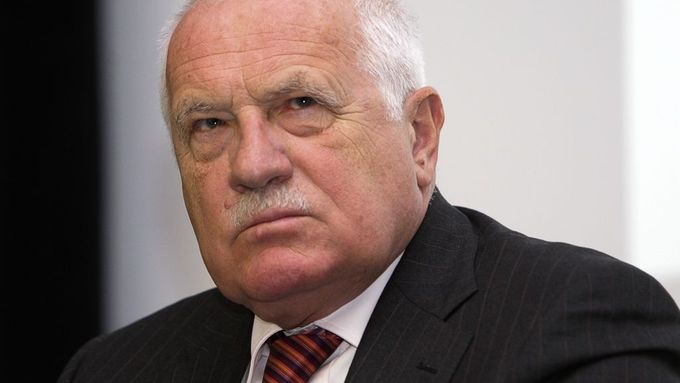Prague - On January 1, 2013, Czech President Vaclav Klaus declared a partial amnesty on the occasion of the 20th anniversary of the independent Czech Republic.
The amnesty applies also to those cases that are more than eight years old and in which the charged face less than 10 years in prison.
This category includes some high-profile financial schemes that caused losses of billions of korunas, with the most important being the Union banka case.
Year of corruption scandals: 2012 in Czech politics
Fraud suspected ahead of January presidential election
Some 130,000 people lost in total almost CZK 17 billion (EUR 680 million) after the bank went bankrupt in 2003, and 75,000 of the creditors filed claims at court. The amnesty most probably means that they will never be able to recover their money.
This case is considered to be a textbook example of "tunneling", a type of white-collar financial crime that was massively committed in the Czech Republic in the 1990s and early 2000s.
Five members of the bank's senior management and board of directors have been charged: Jiri Babis, Miroslav Fucik, Tomas Michal, Alena Pejcochova and Tomas Seidler. According to the prosecution, they allowed unprofitable transactions that caused a loss of CZK 4 billion to the bank.
Thanks to the amnesty, all of them will escape punishment, confirmed Igor Krajdl, a judge at the Ostrava regional court. Krajdl said that the prosecution of the Union banka case started in 2003, so the amnesty applies to it.
The Union banka case file has 100,000 pages and as much as 110 witnesses have been summoned to testify.
Giuseppe Roselli, an Italian banker who represented the Investmar Union company, has also been charged over the case. His prosecution started in 2005 though, which probably means that the amnesty will not apply to him.
Investmar Union took control of Union banka in 2002. In February 2003, Investmar Union received CZK 35 million from the bank, and had a contract for another CZK 30 million. Two weeks later, the bank closed down.
Trend, Progres Invest, KTP Quantum
The amnesty will apply to other notorious cases of financial fraud, such as those related to the Trend, Progres Invest and KTP Quantum companies, confirmed Jana Klikova, a spokesperson at the Hradec Kralove regional court. Clients of these three companies lost in total CZK 3.3 billion.
The case of the Trend investment fund started 16 years ago. The prosecution claims that Trend managers used various methods to channel the shares of its most valuable assets, such as Kotva or Sokolovska uhelna, away from the investment company. In this way, the managers caused a loss of CZK 1.4 billion, which makes it one of the biggest cases of financial fraud in the Czech Republic's history.
Financial machinations committed in relation to the Progres Invest company took away roughly CZK 500 million from more than 36,000 clients.
Two people from the KTP Quantum company have been charged for luring more than CZK 1.35 billion from approximately 10,000 clients by promising 14 percent interest on their deposits.
President Klaus announced the amnesty less than two weeks before the first round of the presidential election on January 11 and 12. Klaus's term will expire in March.
